BMW 7 Series VS Vauxhall Astra – Specs, Efficiency & Price Comparison
Which model is the better choice – the BMW 7 Series or the Vauxhall Astra? We compare performance (571 HP vs 225 HP), boot capacity (540 L vs 422 L), efficiency (1 L vs 15.60 kWh1.30 L), and of course, the price (101300 £ vs 25000 £).
Find out now which car fits your needs better!
The BMW 7 Series (Sedan) is powered by a Plugin Hybrid or Diesel MHEV engine and comes with a Automatic transmission. In comparison, the Vauxhall Astra (Hatchback) features a Petrol, Diesel, Plugin Hybrid, Electric or Petrol MHEV engine and a Manuel or Automatic gearbox.
When it comes to boot capacity, the BMW 7 Series offers 540 L, while the Vauxhall Astra provides 422 L – depending on what matters most to you. If you’re looking for more power, you’ll need to decide whether the 571 HP of the BMW 7 Series or the 225 HP of the Vauxhall Astra suits your needs better.
There are also differences in efficiency: 1 L vs 15.60 kWh1.30 L. In terms of price, the BMW 7 Series starts at 101300 £, while the Vauxhall Astra is available from 25000 £.
Compare all the key specs now and find out which model fits your lifestyle best!
BMW 7 Series
The BMW 7 Series represents the pinnacle of luxury and performance in the executive car segment, offering an unparalleled driving experience. Its elegant design combines aesthetic appeal with advanced technology, ensuring both comfort and connectivity for its passengers. With cutting-edge driver assistance systems, this flagship model showcases the brand's commitment to innovation and safety.
details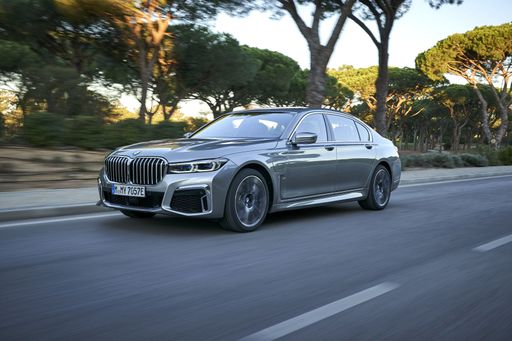 @ press.bmwgroup.com
@ press.bmwgroup.com
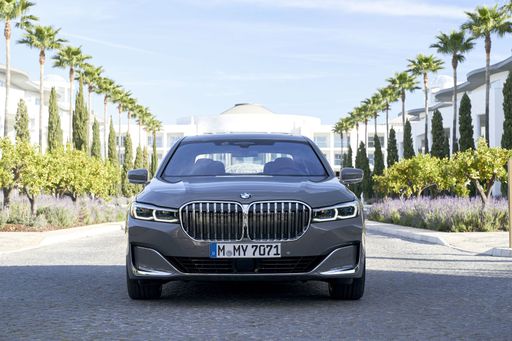 @ press.bmwgroup.com
@ press.bmwgroup.com
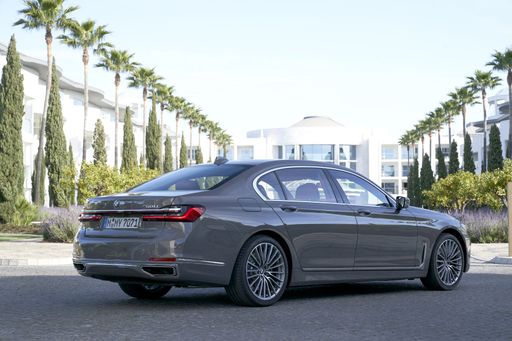 @ press.bmwgroup.com
@ press.bmwgroup.com
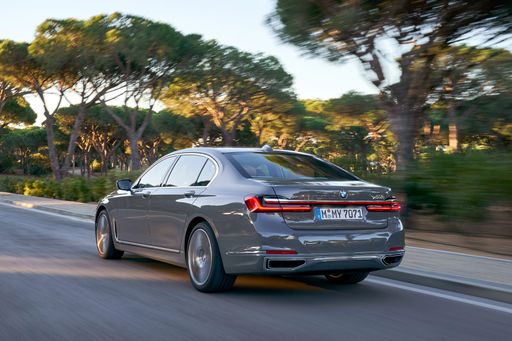 @ press.bmwgroup.com
@ press.bmwgroup.com
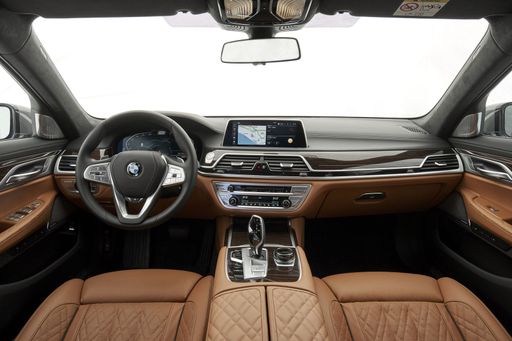 @ press.bmwgroup.com
@ press.bmwgroup.com
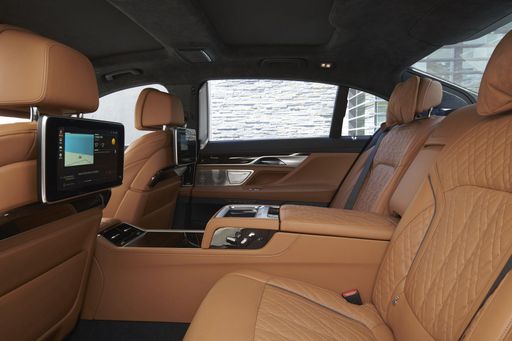 @ press.bmwgroup.com
@ press.bmwgroup.com
Vauxhall Astra
The Opel Astra exudes a sleek and modern design, making it a standout choice in the compact car segment. Its interior is thoughtfully crafted, providing both comfort and cutting-edge technology for an enhanced driving experience. The vehicle is also celebrated for its efficient performance, adeptly balancing power with fuel economy to suit urban and long-distance journeys alike.
details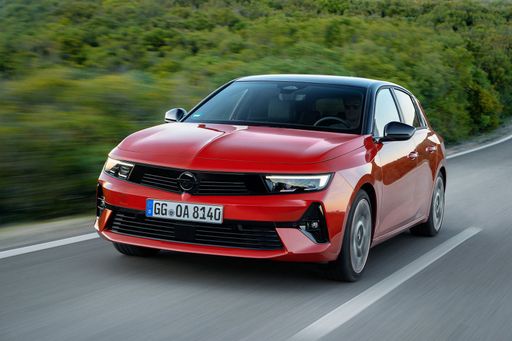 @ www.media.stellantis.com
@ www.media.stellantis.com
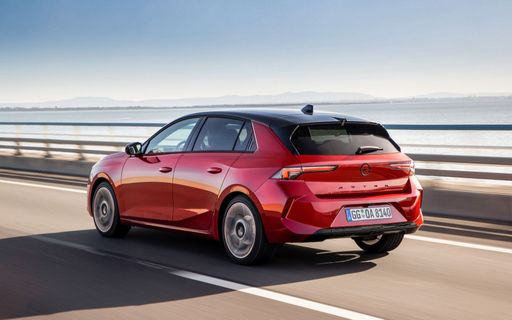 @ www.media.stellantis.com
@ www.media.stellantis.com
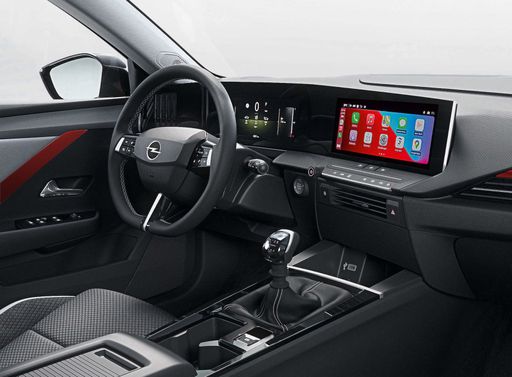 @ www.media.stellantis.com
@ www.media.stellantis.com

|

|
|
|
|
Costs and Consumption |
|
|---|---|
|
Price
101300 - 127300 £
|
Price
25000 - 40500 £
|
|
Consumption L/100km
1 - 6.1 L
|
Consumption L/100km
1.3 - 6 L
|
|
Consumption kWh/100km
-
|
Consumption kWh/100km
15.60 kWh
|
|
Electric Range
80 km
|
Electric Range
57 - 418 km
|
|
Battery Capacity
17.60 kWh
|
Battery Capacity
11.3 - 51 kWh
|
|
co2
23 - 160 g/km
|
co2
0 - 135 g/km
|
|
Fuel tank capacity
65 - 74 L
|
Fuel tank capacity
42 - 52 L
|
Dimensions and Body |
|
|---|---|
|
Body Type
Sedan
|
Body Type
Hatchback
|
|
Seats
5
|
Seats
5
|
|
Doors
4
|
Doors
5
|
|
Curb weight
2255 - 2525 kg
|
Curb weight
1341 - 1736 kg
|
|
Trunk capacity
525 - 540 L
|
Trunk capacity
352 - 422 L
|
|
Length
5391 mm
|
Length
4374 mm
|
|
Width
1950 mm
|
Width
1860 mm
|
|
Height
1544 mm
|
Height
1432 - 1488 mm
|
|
Payload
605 - 665 kg
|
Payload
444 - 509 kg
|
Engine and Performance |
|
|---|---|
|
Engine Type
Plugin Hybrid, Diesel MHEV
|
Engine Type
Petrol, Diesel, Plugin Hybrid, Electric, Petrol MHEV
|
|
Transmission
Automatic
|
Transmission
Manuel, Automatic
|
|
Transmission Detail
Automatikgetriebe
|
Transmission Detail
Schaltgetriebe, Automatikgetriebe, Automat. Schaltgetriebe (Doppelkupplung)
|
|
Drive Type
All-Wheel Drive
|
Drive Type
Front-Wheel Drive
|
|
Power HP
300 - 571 HP
|
Power HP
130 - 225 HP
|
|
Acceleration 0-100km/h
4.3 - 5.8 s
|
Acceleration 0-100km/h
7.5 - 10.6 s
|
|
Max Speed
250 km/h
|
Max Speed
170 - 235 km/h
|
|
Torque
670 - 800 Nm
|
Torque
230 - 360 Nm
|
|
Number of Cylinders
6
|
Number of Cylinders
3 - 4
|
|
Power kW
220 - 420 kW
|
Power kW
96 - 165 kW
|
|
Engine capacity
2993 - 2998 cm3
|
Engine capacity
1199 - 1598 cm3
|
General |
|
|---|---|
|
Model Year
2023 - 2024
|
Model Year
2023 - 2025
|
|
CO2 Efficiency Class
B, F
|
CO2 Efficiency Class
D, B, A, C
|
|
Brand
BMW
|
Brand
Vauxhall
|
BMW 7 Series
Introduction to the BMW 7 Series
The BMW 7 Series has long been synonymous with luxury, performance, and cutting-edge technology. The latest versions continue this tradition, integrating sophisticated hybrid technology with distinguished design and powerful performance. Whether cruising the motorway or navigating urban landscapes, the BMW 7 Series offers an exceptional driving experience.
Technical Specifications
The 2023 BMW 7 Series boasts a range of impressive specifications and features. The engine options, which include both diesel mild-hybrid and plug-in hybrid variants, provide flexibility for different driving needs. With power outputs ranging from 300 PS to a remarkable 571 PS, the 7 Series does not compromise on performance. Coupled with intelligent all-wheel drive and an automatic transmission, it assures smooth and responsive handling.
Fuel efficiency is another highlight, with the series achieving consumption figures as low as 1.1 L/100km for the plug-in hybrid models, showcasing the brand's commitment to sustainability without sacrificing performance.
Advanced Hybrid Technology
The integration of mild-hybrid and plug-in hybrid systems into the 7 Series marks a significant advancement in BMW's pursuit of greener motoring. The plug-in hybrid variants, with a battery capacity of 18.7 kWh, offer an all-electric range of up to 79 km - ideal for city driving. This hybrid setup not only reduces emissions but also enhances acceleration, delivering a swift 0-100 km/h time ranging from 4.3 to 5.8 seconds.
Luxury and Comfort
The BMW 7 Series epitomises luxury, featuring an interior designed for comfort and convenience. Standard equipment includes high-grade materials, advanced connectivity, and cutting-edge infotainment systems. The cabin is spacious, with ample room for five passengers and a generous boot capacity of up to 540 litres, ensuring that long journeys are as comfortable as they are efficient.
Safety and Innovation
Safety remains paramount in the BMW 7 Series, with an array of features designed to protect occupants and enhance driving confidence. This includes state-of-the-art driver assistance systems, which provide support in various driving conditions, thus ensuring a safer driving experience.
In conclusion, the BMW 7 Series stands as a testament to automotive innovation, blending traditional luxury with modern efficiency and performance. It's a fine choice for those who seek the pinnacle of automotive engineering and technology.
Vauxhall Astra
Opel Astra: A Legacy of Innovation and Technology
The Opel Astra has been a staple in the automotive market, continuously evolving to integrate cutting-edge technology and innovation. The latest versions of the Astra model continue this tradition, offering a range of engine types and an array of features designed to enhance driving performance and efficiency.
A Comprehensive Range of Powertrains
The latest Opel Astra models boast a selection of advanced powertrains, providing options for every type of driver. From the efficiency-oriented Mild-Hybrid engines to the cutting-edge fully electric variants, the Opel Astra is tailored to meet diverse customer needs. Car enthusiasts can choose from petrol, diesel, and hybrid engine types, with power outputs ranging between 110 PS and 225 PS, ensuring both efficiency and performance.
Sustainability Meets Performance
In an era where sustainability is paramount, the Opel Astra makes significant strides with its eco-friendly models. The Plug-In Hybrid options within the range offer an impressive fuel consumption rate of just 1.3 L/100km, highlighting Opel's commitment to reducing carbon footprints. Furthermore, the fully electric Astra model boasts an extended range of up to 418 km, catering to the growing demand for zero-emission vehicles.
Advanced Driving Dynamics
The Opel Astra is not just about power; it also offers an exceptional driving experience. With advanced gear options such as automatic transmissions and fine-tuned manual gearboxes, the Astra ensures smooth transitions and responsiveness. The front-wheel-drive configuration provides balanced handling, making it suitable for various driving conditions.
Technology and Features Galore
Opel has equipped the Astra with a myriad of technological advancements aimed at enhancing the driving experience. Cutting-edge infotainment systems, driver-assistance features, and comfortable interiors make every journey enjoyable. Buyers can also choose from multiple trim levels to personalise their Astra, ensuring it fits their lifestyle perfectly.
A Versatile and Stylish Design
The Opel Astra's sleek and modern design makes a bold statement on the road. With dimensions of 4,374 mm in length and a width of 1,860 mm, the Astra strikes a confident pose. Despite its compact build, the hatchback offers ample interior space, including a boot capacity ranging from 352 to 422 litres, embodying practicality without compromising on style.
Value for Money
Starting at a competitive price range between 27,910 € and 47,260 €, the Opel Astra offers excellent value for its array of features and performance capabilities. Its cost-effectiveness is also evident in the monthly operational costs, making it an attractive option for consumers looking for a reliable and cost-efficient vehicle.
The Opel Astra continues to set benchmarks in the compact car segment, effortlessly blending innovation, sustainability, and performance. With its range of versatile powertrains and cutting-edge technology, the Astra is poised to meet the demands of modern drivers while contributing to a greener future.
The prices and data displayed are estimates based on German list prices and may vary by country. This information is not legally binding.
